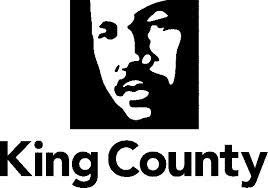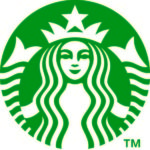
Case Study: Washington Hall
Case Study: Washington Hall + Anchor Partners: 206 Zulu, Hidmo Cypher, Voices Rising
Founded: 1908 (original building); 2016 (re-opened)
Headquartered: 153 14th Ave, Seattle, WA 98122
Owned By: Historic Seattle
Operated By: 206 Zulu, Hidmo, Voices Rising
Washington Hall’s story began over 100 years ago, as Seattle was gearing up to host the Alaska-Yukon Pacific Exposition and lumber and gold were booming industries, luring immigrants to the Pacific Northwest city. The city’s population nearly tripled over the decade from 1900 to 1910. The Danish Brotherhood commissioned Washington Hall to serve as a landing spot for new immigrants and a lodge for the fraternal organization, but also as a “hall for all” or a place open for people from all backgrounds to meet, celebrate, organize, and perform. Performers including Billie Holiday, Count Basie, Ella Fitzgerald, and Jimi Hendrix have graced its stage and the main hall has hosted everything from Ethiopian church services to Jewish Socialist organizations and the Japanese Gentleman’s Club.
The neighborhood around the hall, the Central District, evolved over the years from predominantly Jewish to predominantly black by the ‘60s due to housing discrimination and restrictive covenants enforced in other parts of the city. The Sons of Haiti, a black fraternal organization, purchased the Hall from the Danish Brotherhood in 1973 and continued the tradition of open doors to the community. A generation later, the Central District was quickly gentrifying, and black communities were being displaced in large numbers. It was a century of change, including earthquakes and fires, and by 2007, Washington Hall stood in serious disrepair, and its future as a new condominium development seemed imminent.
Social Impact: Fostering neighborhood vitality in a building with a mission
Washington Hall was in tear-down condition, and within it, noteworthy examples of Mission Revival architecture. However, according to Kji Kelly, Executive Director of Historic Seattle, a public development authority focused on preservation, the true loss or the thing they “couldn’t stand to see happen” was the loss of a community gathering space with a 100 year long history of inclusion. Which is why in June 2009, Historic Seattle purchased the property for $1.5 million with plans for a five-phase, $8.1 million restoration. By June 2016, the Hall was again open to all.
While Historic Seattle could manage the financing and restoration of the building, they needed partners to breathe heart and soul back into the structure. As Kelly put it, “When preservation is done best, we do the bones, brick, mortar. We do what we are good at and we know what we are not good at.” Partnering with 4Culture, a King County public development authority supporting local arts and culture, they let an RFP for Anchor Tenants to occupy the Hall. Central District arts and empowerment organizations 206 Zulu, Hidmo Cypher, and Voices Rising, answered the call.
It quickly became clear that a traditional landlord-tenant arrangement did not mesh with the spirit of Washington Hall’s revival as a community-owned space. Anchor Tenants became Anchor Partners, and they formed a new governance structure that included youth, the community at large, and renters. Together they developed a Mission and Values for the governance of the Hall: “To create a transformative space in Seattle’s Central District that honors the history of The Hall and is a home for arts & culture that reflects its legacy,” and assumed responsibility and decision-making power over the building’s rental program. As a marked counterpoint to the forces driving the neighborhood’s gentrification, the terms of the master lease relationship between Historic Seattle and the Anchor Partners are decidedly below-market. Every Anchor Partner had 18 months of free or discounted rent, on a flexible long-term 15-year lease. The lease is lease-to-buy, giving the partners the first right of refusal to buy Washington Hall at the end of the term with past rent credited to the purchase price.
The Anchor Partners, namely, Voices Rising, a queer person of color organization mentoring local, up and coming artists; Hidmo Cypher, a network of artists, educators, and activists producing all-ages arts and media programming; and 206Zulu, the Seattle chapter of an international social change organization based in hip-hop culture, all had some experience with the threat of displacement before finding a home at Washington Hall. Even through times of massive economic displacement, art is resilient, artists will always find a place to say what needs to be said. These organizations and artists would have found something, though it might have meant a loss to the neighborhood. In Washington Hall, not only did they get a stable home, their presence helps to preserve and build neighborhood character and vitality and sends signal to the rest of the community that this can be a place for you, too.
Today, well into their stride as co-operators of the Hall, the Partners host something different weekly, if not daily: perhaps a hip-hop youth voter registration event, a meditative celebration of Matrilineal Day, or a tour stop of international YouTube culture, crafts, and lifestyle celebrities. Over one hundred years later, the vibrant and inclusive mix of arts and culture within Washington Hall’s walls continues strong.
Sponsors
Social Impact Study Community Conversations Sponsors
![]()
![]()






